
Movies
Top Fives

Tony's Top Ten: Best Films of 2012
Filed under: Top Fives
Okay... Before we hit the list, I should clarify: Numbers ten through six are listed in numerical order merely to keep with the articles format. #9 might actually be slightly better than #7, give or take. However, the Top Five are listed in the correct numerical order. Number one is undoubtedly my favorite. Sigh. And with that nonsense out of the way-- on to The Best Movies of 2012.
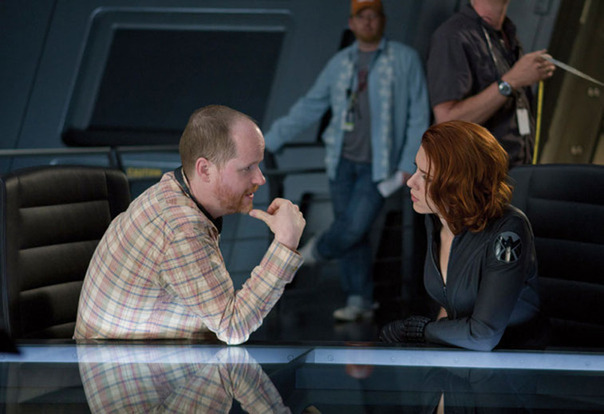 10. The Cabin in the Woods / The Avengers
10. The Cabin in the Woods / The Avengers
It's a tie. (#BadOscarsJoke.) And why not? It has been a big, vindicating year for Joss Whedon. To start with, Cabin in the Woods, the little gem that he wrote and produced with Drew Goddard... you know... the one that was shelved for nearly 3 years (only gaining it further geek-anticipation) was finally released to not only critical but, financial redemption as well.
But hell-- that's nothing. He followed Cabin up with a huge tent-pole franchise flick. A movie that many people (myself included) believed was destined to brutally bomb under its own sheer magnitude. And yet, it succeeded. Those ingredients, six costumed superheroes, did not immediately scream Great Screenplay Potential. And yet, it succeeded. The Avengers nailed it. Joss Whedon produced one of the best popcorn films ever made.
Let's face it! The Avengers has got it all: Great dialogue, compelling characters, Scarlett Johansson doing Kung-Fu in very tight fitting clothes. It is the biggest, and one of the best films of 2012. If you happen to see Joss Whedon gloating, go easy on him. He totally earned that right.
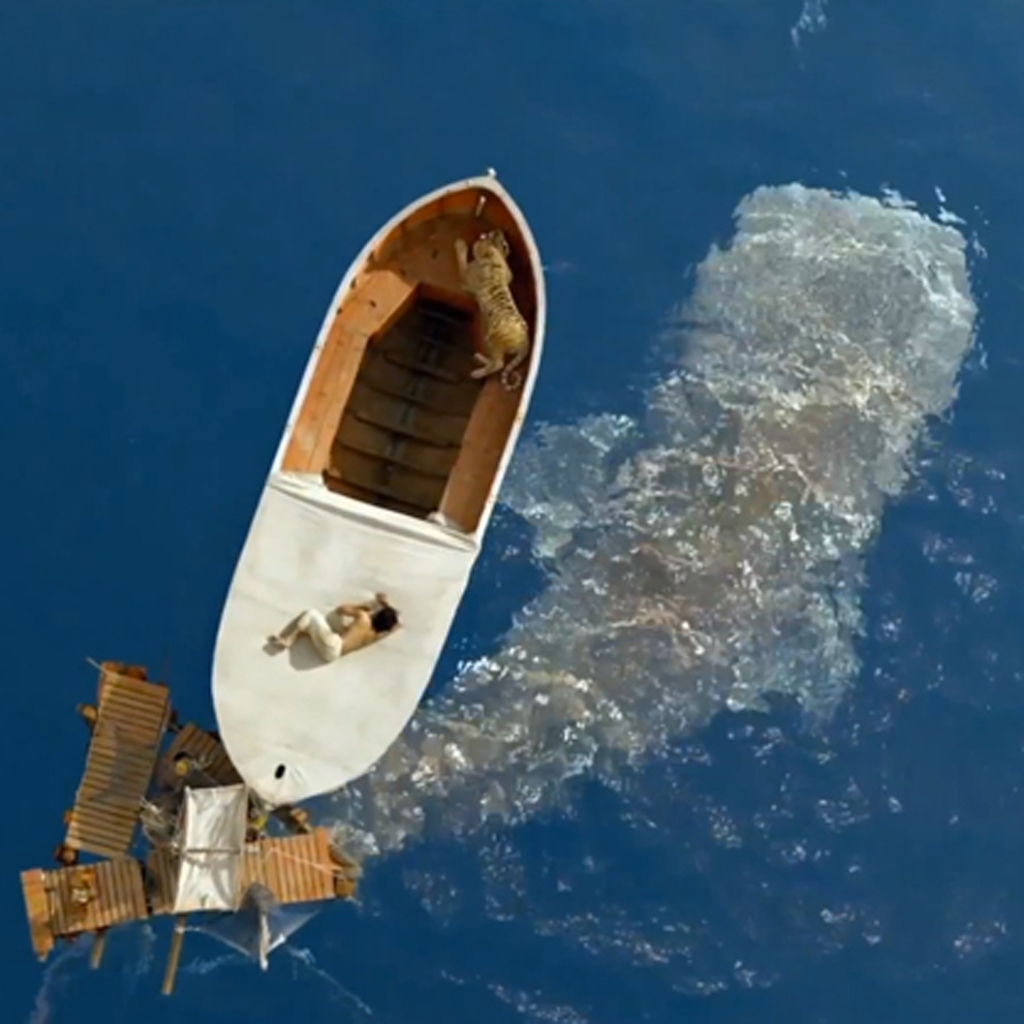 9. Life of Pi
9. Life of Pi
Life of Pi is not quite a perfect movie but, the work of director Ang Lee elevates this material into moments of undeniable beauty.
The set up might drag a bit, admittedly. But once that tropical storm hits, Lee's film takes a drastic jump-- a great surrealistic leap into illogical, breathtaking pulchritude. You may balk when you hear that the story follows a teenage boy lost at sea on a lifeboat with nobody to keep him company but a vicious, hungry tiger.
But indeed, the film's execution, in 3D, is as mesmerizing a cinematic experience as I have ever seen. I will honestly never forget it. Visually, Lee is no slouch, but his masterful execution of shots, blending underwater footage with fantastic CGI is breathtaking in the literal sense of the word. Screw hyperbole. Life of Pi is a flick that earns every glowing review that it receives.
Yann Martel's novel is a worldwide bestseller (unread by little old me) so, I will assume that many readers already know how this story ends. The reveal-- that this is less a story about animals than it is a story about well... storytelling-- hits like a devastating emotional sucker-punch. What really happened on that lifeboat was so ugly and heartbreaking. This lovely lie of a tale miraculously transforms the worst aspects of life into something genuinely affirming.
Pi was absolutely right. The version with Richard Parker is so much better.
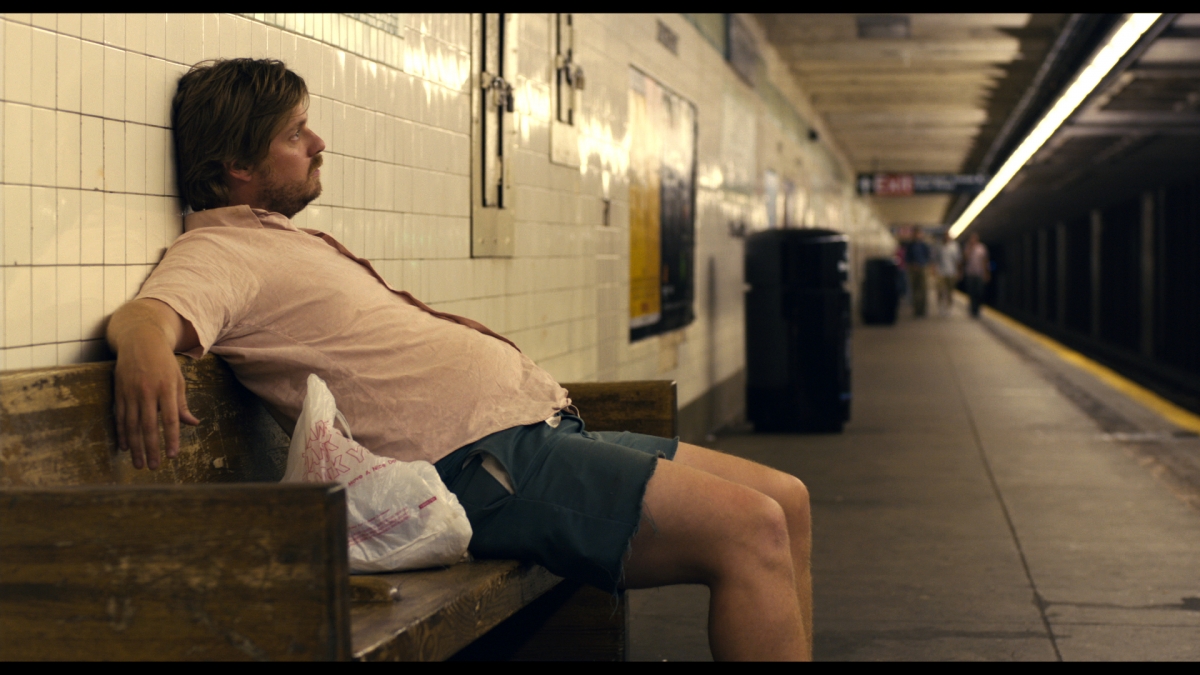 8. The Comedy
8. The Comedy
It may seem unlikely preceding The Master (spoiler alert) but, The Comedy is the strangest and most challenging film on this list.
We follow a shallow, cruel protagonist (Tim and Eric's Tim Heidecker) named Swanson. He is lost, adrift in a sea of money, alcohol and irresponsibility-- in the hipster sanctuary of Williamsburg, Brooklyn. His wealthy father lies dying in a hospital bed, unconsciously supplying his son with an endless cash flow.
As enthralling as it is confounding, The Comedy is most effective when viewed as a critique of the modern (dare I reuse the word) hipster mentality. That I'm above everybody else way of thinking that has become so deeply engrained into Swanson's very being. He will often insert himself into precarious situations involving people of a lower financial class. Examples include the landscapers or that poor taxi driver. From his place in the world, these are easy targets for Swanson to mock. Even if they do fight back, there will never be any real consequences.
Most film stories involve characters who gradually change over the course of three acts. That's pretty much industry standard. But not in this story. Swanson is exactly the same person at the end of the movie, as he is at the start. This moron will once again escape without a single lesson learned. On one hand, that is not the spoiler that it may seem to be so, do not fret. On the other hand, that may be the whole point of The Comedy.
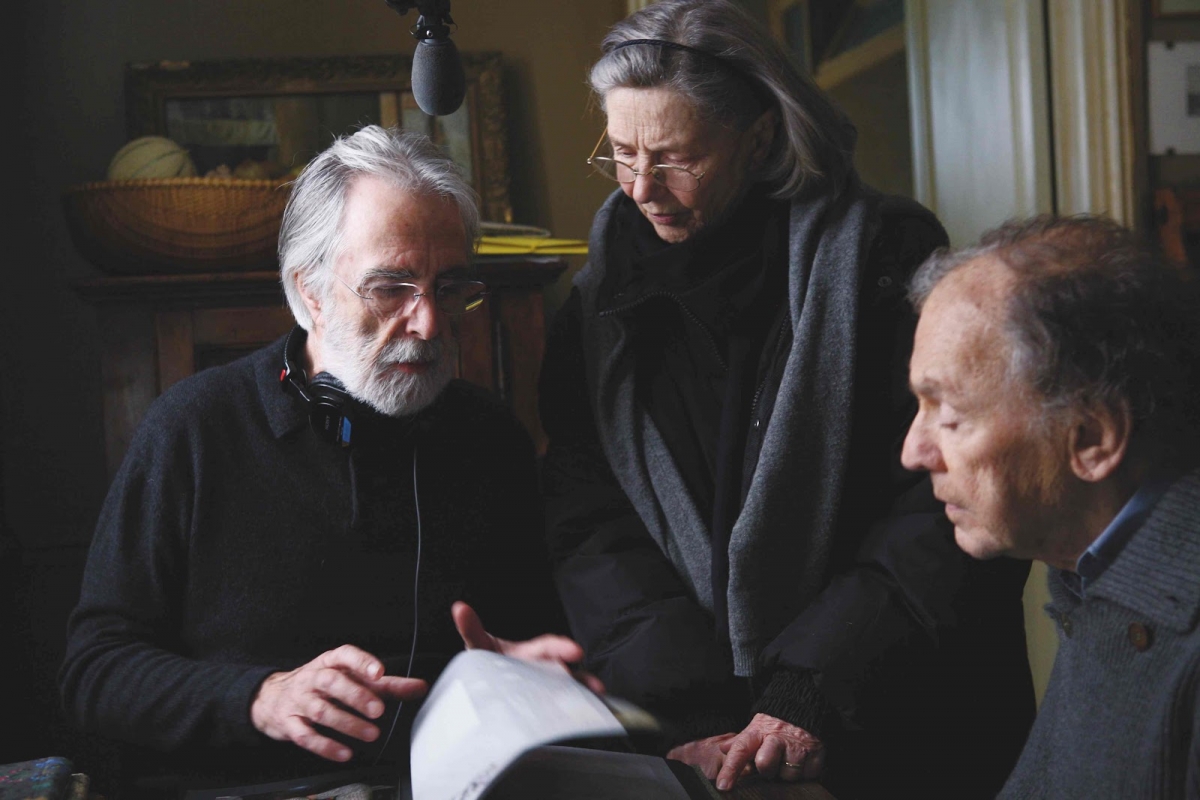 7. Amour
7. Amour
Yes, that boring French movie that 'nobody saw'.
Many have grown accustomed to the darker works of legendary filmmaker Michael Haneke. In Funny Games and Cache, he showed us things that we all hope we will never have the rotten luck of living through. In his Cannes Palm D'or winning The Piano Teacher, Haneke observed casual depravity in a calculatingly perverse way. Thankfully, the worlds that he depicted seemed so far removed from our day to day lives, we could easily write them off as 'just a movie'.
However, in Amour, we are greeted with images that are as equally as dark and disturbing but frankly-- we are almost guaranteed to have scenes like this in our futures. All of us. (Assuming we have the grave misfortune of living long enough.)
An old woman suffers a massive stroke and her loving husband takes care of her. We watch as her condition worsens. It's a slow burn until the climax, a scene of such pain and horror. Haneke watches unflinchingly as something horrid happens, his camera never moving an inch, giving us no clue of what he thinks of this dénouement. And considering what does happen, the film is refreshingly apolitical. The American version of the story would have pathetically telegraphed that twist from the first scene.
Amour is an emotionally barbaric elegy to a happy, loving marriage. At least, that's my best guess after one viewing. And the pigeon? I'm still mulling over that one.
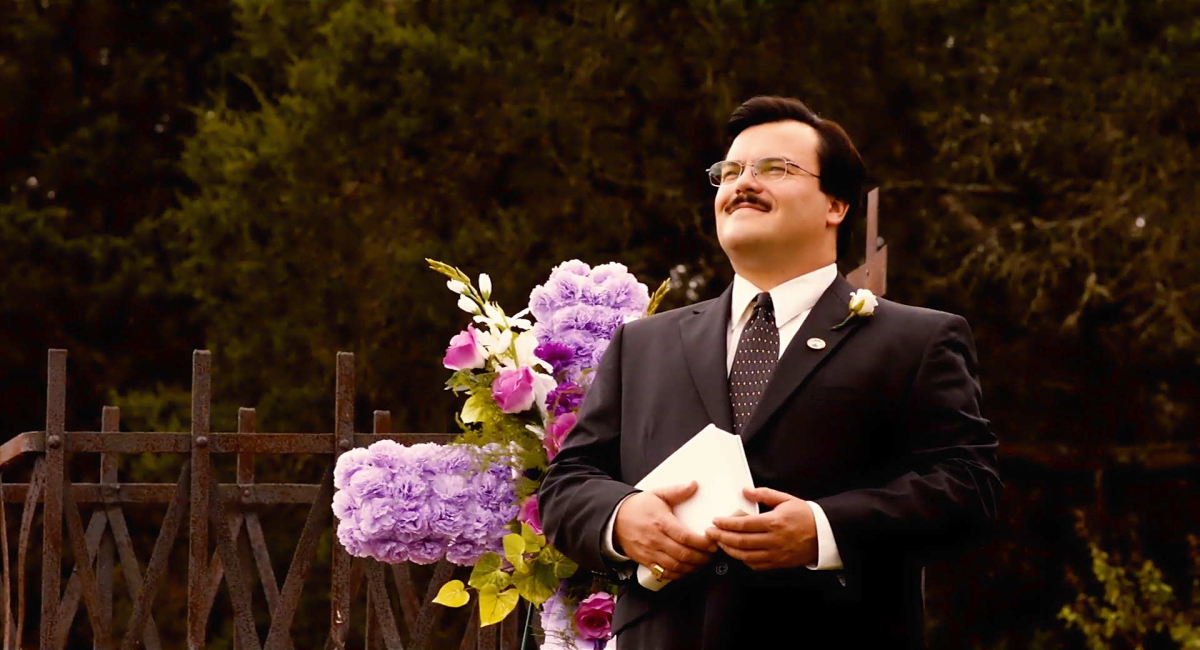 6. Bernie
6. Bernie
Is Bernie a more fascinating film because we know it is based on a true story? The film's closing shots do not contain spoilers. Instead, we see behind the scenes footage of Jack Black meeting the real Bernie. These events (or facsimile versions of them) really took place in Texas in 1996.
Linklater's style (clearly influenced by Gus Van Sant's rarely mentioned masterpiece To Die For) places us inside Bernie's world by literally introducing us to his real life friends and neighbors. These are not actors playing roles. These are the real people who lived up the street from him.
It's hard to believe but, unfortunately true. This pudgy, sweet, possibly gay man really did murder that wicked old hag (the genius Shirley McLaine). Shot her right in the spine. An aggressive and dominating man would not likely shoot someone in the back, given the cowardly connotations. But Bernie did, because-- he was afraid of her. And now Bernie is confined for the rest of his life to a jail cell.
I have made the film sound much darker than it actually is. In truth, Bernie is a warm and very funny movie. If only it had a happier ending...
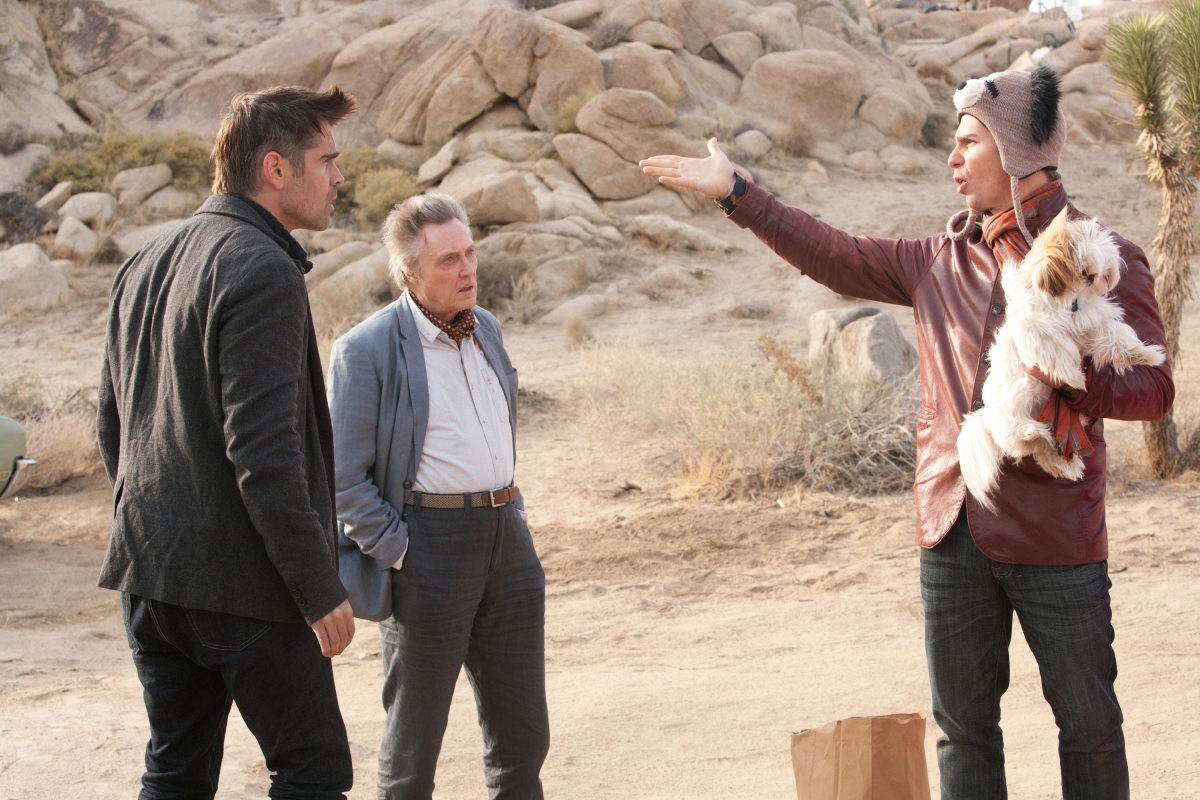 5. Seven Psychopaths
5. Seven Psychopaths
I expected to laugh. But I did not expect to be emotionally moved. Seven Psychopaths follows Marty (Colin Farrell), an alcoholic screenwriter struggling to complete his latest opus, entitled... Seven Psychopaths. He stresses that he doesn't want the film to become yet another cliché Hollywood psychopath movie, showcasing macho dudes with guns, thoughtlessly killing the innocent. NO! Instead, Marty wants the story to be about peace and love. Oh and also, seven psychopaths.
His pal Billy Bickle (the great Sam Rockwell), an actor and dog-kidnapper by trade ("Dog-borrower!!" Billy is quick to correct) secretly dreams of co-writing the movie with Marty, much to his Irish friend's chagrin.
But in the end, Marty (Read: writer/ director Martin McDonough, Oscar winning creator of the masterpiece In Bruges) pulled it off. Seven Psychopaths is indeed a heartfelt film about pacifism and friendship. And it still manages to weave all the blood, guts and bullets one could hope for-- into the tapestry in hilarious and ingenious ways.
The film was overlooked by the Oscars, sadly. Most notably, the work of the staggering genius Christopher Walken. This is his best, most heartbreaking performance since The Deer Hunter.
 4. The Master
4. The Master
My review of The Master already stands but, here are some gushing elaborations: There is no more daring and brave a filmmaker working in Hollywood than Paul Thomas Anderson. His works incites genuine speculation and intrigue when they are announced (every seven or so years). It's a movie about Scientology, everybody said. And when they saw it, they realized... that it wasn't. It was a PT Anderson movie and they cannot be easily categorized or synopsized. And so, I won't even bother.
In my review, I had the arrogance and audacity to claim that I was not "emotionally moved" by the film. After my second viewing, I shook my head with genuine wonder. How had I missed the emotion?
Philip Seymour Hoffman's Lancaster Dodd truly loves and cares for Freddie Quell (Joaquin Phoenix). The films most heartbreaking passage comes when Dodd asks his friend if he will agree to stay with the organization, The Cause. Freddie declines: "Maybe in another life." Dodd sadly shakes his head: "If you and I were to meet in another life-- you would be my worst enemy."
I don't believe that he truly means these words. This is some twisted form of reverse psychology intended to keep Freddie in his embrace. However, it achieves the opposite effect. Alas, Freddie does not see the manipulation and (as he should) departs Dodd's company, for good. For the better, we hope.
As odd as it may sound, the structure could almost be compared to Woody Allen's Annie Hall. Both films document the birth, life and subsequent death of a life-altering friendship.
Oh, and also: "Cools are good. I like their minty flavor." Who doesn't?
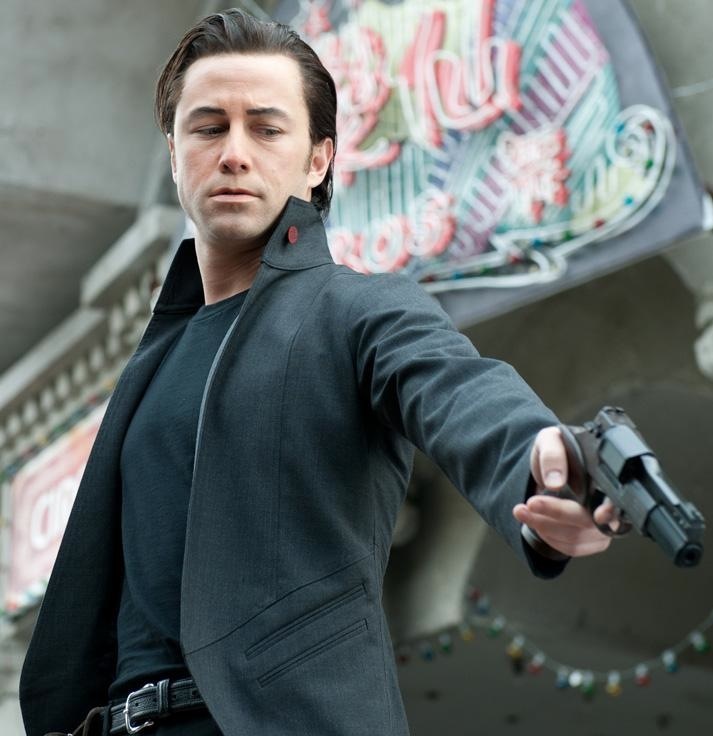
3. Looper
In a year chock full of great screenplays, one stands out as not only brilliant but surprisingly overlooked, and that is Rian Johnson's Looper. Sure, there are a few folks online pointing out the time travel paradox problems, as if plot holes negatively affect an already engrossing and original narrative. They missed the point! It's not just about time travel.
A 'Looper' is a hit man-- assigned by mobsters to kill people sent back in time from 30 years in the future. In 2074, it's very, very difficult to dispose of corpses. In 2044 -- not so difficult. Necessity is the mother of invention and thus, a business is born.
If you cracked a joke about how Johnson dumbed-down the science of time travel, recalling that scene where Bruce Willis makes reference to plastic straws -- you totally missed the point. Looper is a film not only about self-sacrifice but, above all else, consequences. All actions have consequences, good or bad. (Also: You can find plot holes and weird paradoxes in the masterpiece that is Back to the Future ... so, who cares?!)
This is a film that will be loved and cherished for years to come. The Looper fan-base will grow, I assure you. And I have a feeling that many of those new fans will be the same people who mocked it the first time around.
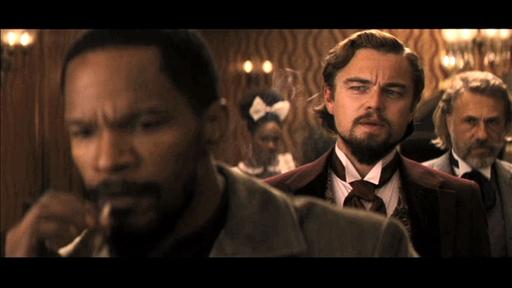
2. Django Unchained
The true spirit of Django Unchained can be found in the sequence scored by Jim Croce's "I've Got a Name". Django (Jamie Foxx), now a free man-- removes the old saddle from his horse's back, a saddle originally procured by a white slaver, the animal's previous owner. He then mounts, in its place, his own saddle-- personalized with an embroidered D for Django. (Incidentally, Django's horse is named Tony. Just sayin'.) His freedom is still new and unfamiliar to him but, Django is more than willing to grasp those reigns and ride.
Sadly, many filmgoers tend to look down their noses at Tarantino. And even more so -- at his fans. I know. I'm supposed to say that Tarantino is a washed-up hack and blah blah blah. Uh oh, looks like I won't be sitting at the Cool Kid's Table.
The backlash emerged years ago and appears to be here to stay. And yet, all of their criticisms seemed directed not so much at the films but, at Tarantino personally. It's bizarre but, I've seen the same thing happen to everyone from Kevin Smith to JJ Abrams to Christopher Nolan. (All of whom I support.) These fans cannot separate the artist from the art. I feel that if Django Unchained had been the debut work of a young rookie filmmaker, those anti-intellectual snobs wouldn't even bat an eye. Or blog a single knee-jerk word.
Besides, critics always attack filmmakers for making boring, milk toast mainstream films and yet, when something as unique as Django comes along, they knock it for being too un-milk toast mainstream. It's a real shame.
Django Unchained is the most entertaining and addictively watchable R-rated film of 2012.
1. Moonrise Kingdom
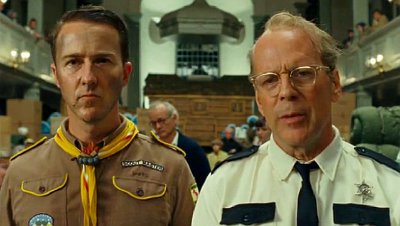
No lie: I've watched this movie 5 times since I picked up the disc. It is the saddest, happiest, funniest and most decrepitly beautiful film on this list. It is everything about life and yet, the film disguises itself as a Technicolor coming of age tale. There many fine films on this list and many that deserve high praise. But at the end of the day, I couldn't deny the whimsy and hope that Moonrise Kingdom inspires.
The plot follows two young lovers named Sam and Suzi, who run off into the woods together. This unearths major drama in the lives of their families and many of the surrounding adults (played by Edward Norton, Bruce Willis, Tilda Swinton, Bill Murray, Frances McDormand and Bob Balaban), as a search party is quickly dispatched to bring the kids home.
Re-watching it, I found myself noticing many details I had overlooked on the first viewing. Visuals, for sure. But, I had forgotten how wonderfully grim Wes Anderson's sense of humor can get. I won't spin it: He literally murders Snoopy in this movie (or at least a cute doggie named after Snoopy), via an arrow to the throat. As our heroes, Sam and Suzi stand over the body, Suzi asks: "Was he a good dog?"
Sam thinks for a moment and replies: "Who's to say?" Ouch.
Anderson never treats his animals with sentimentality. The same goes for the children of Moonrise Kingdom. These kids encounter some pretty rough stuff along the way but, Anderson and his co-writer Roman Coppola gracefully avoid cutesy in favor of real. Well, as real as a story set in Wes Anderson Land can be, I suppose.
But, all that film critic blabber aside, it's a gosh-darn instant classic and my favorite film of 2012.
Honorable Mentions:
Chronicle (Screenwriter Max Landis truly deserved some awards season love. Alas...); Argo; This is 40; Killer Joe (Where was Juno Temple's Best Actress nom?); Dark Horse; Killing Them Softly; 21 Jump Street
Follow Tony on Twitter.
Tags: The Master, Looper, Django Unchained, Amour, Moonrise Kingdom, Joss Whedon, Life of Pi
Related Posts
- Review: Self/Less
- Review: The Avengers: Age of Ultron
- Andrew's Top Ten: Best Films of 2012
- Oscar Talk: Argo Annointed Hollywood's Best
- 2013 Oscars: Live tweeting during the telecast, links to our lead-up coverage, and a complete list of winners after the show
Tony Hinds is a Canadian writer who studied film at the University of Winnipeg. In addition to ShowbizMonkeys.com, Tony has reviewed films for Step On Magazine and The Uniter. You can find Tony on Twitter.




Comments Posted (